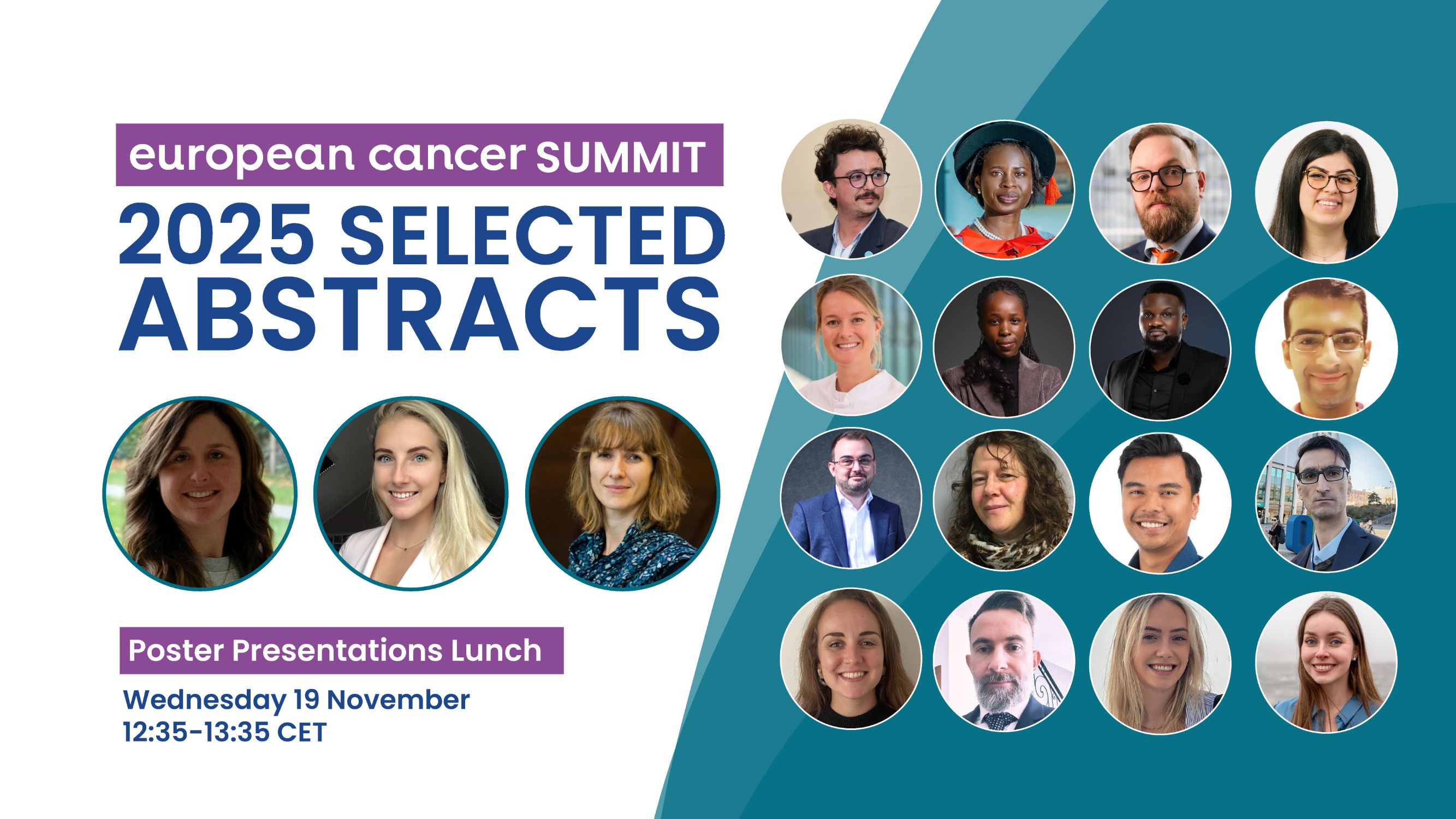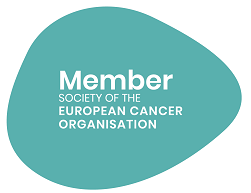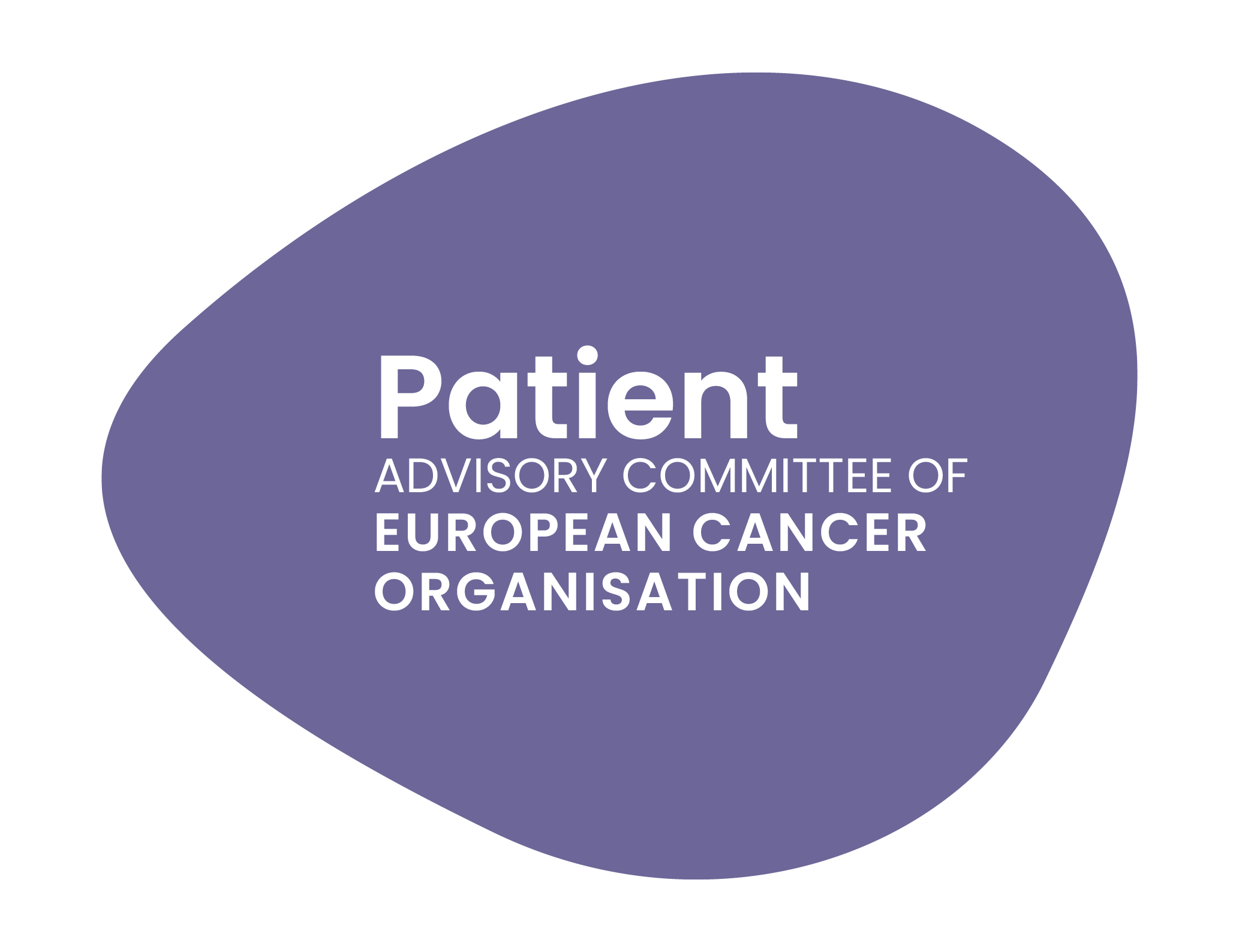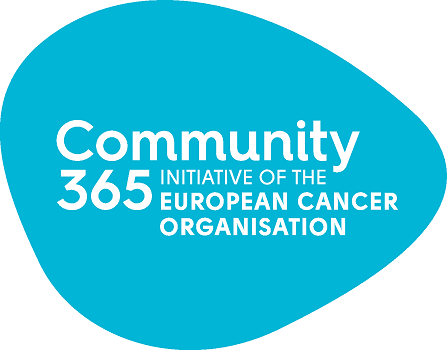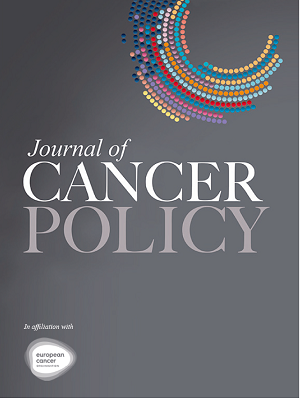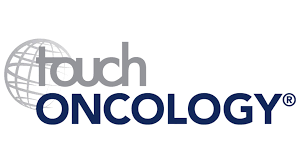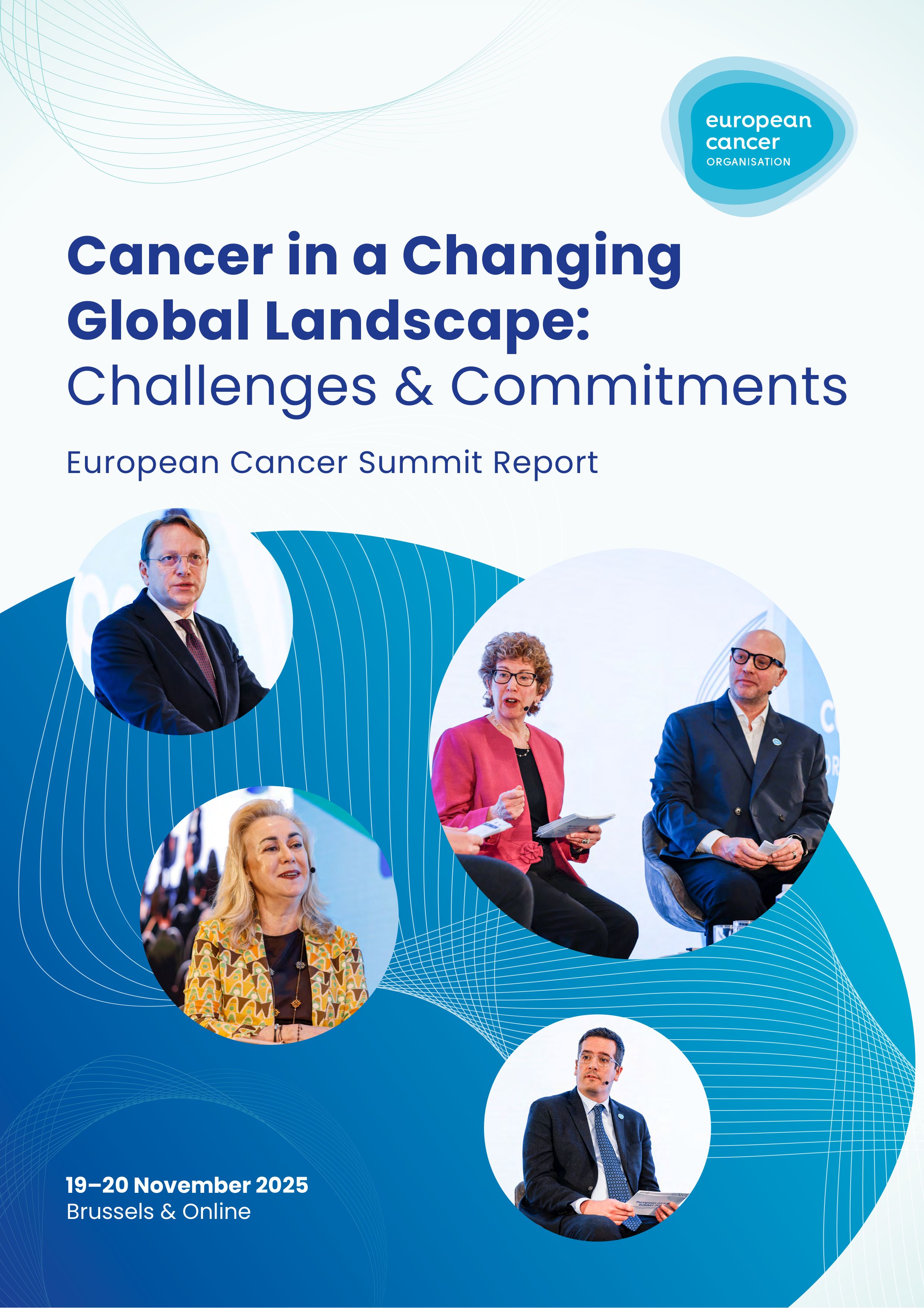 Extraordinary times call for extraordinary commitment. The newly released European Cancer Summit Report 2025 provides a clear roadmap for future action.
Extraordinary times call for extraordinary commitment. The newly released European Cancer Summit Report 2025 provides a clear roadmap for future action.
Developed in collaboration with ECO’s Focused Topic Networks, this report captures the key discussions, commitments and major publications unveiled during the Summit.
Explore the new publications unveiled and discussed during this year’s Summit:
- Next Level for Cancer Screening: From Commitments to Continued Action for Early Cancer Detection
- Harnessing AI for Cancer Care in Europe
- Closing the Gaps: The Status of Cervical Cancer Screening Programmes in Europe
- Next Level EU Cancer Survivorship and Quality-of-Life Policy
- Optimising EU Investment in Cancer Research: A Strategic Framework for Better Impact
Look back at the highlights of this year’s Summit (of day 1 & day 2), and continue sharing your experiences and building your networks on social media with #EuropeanCancerSummit.
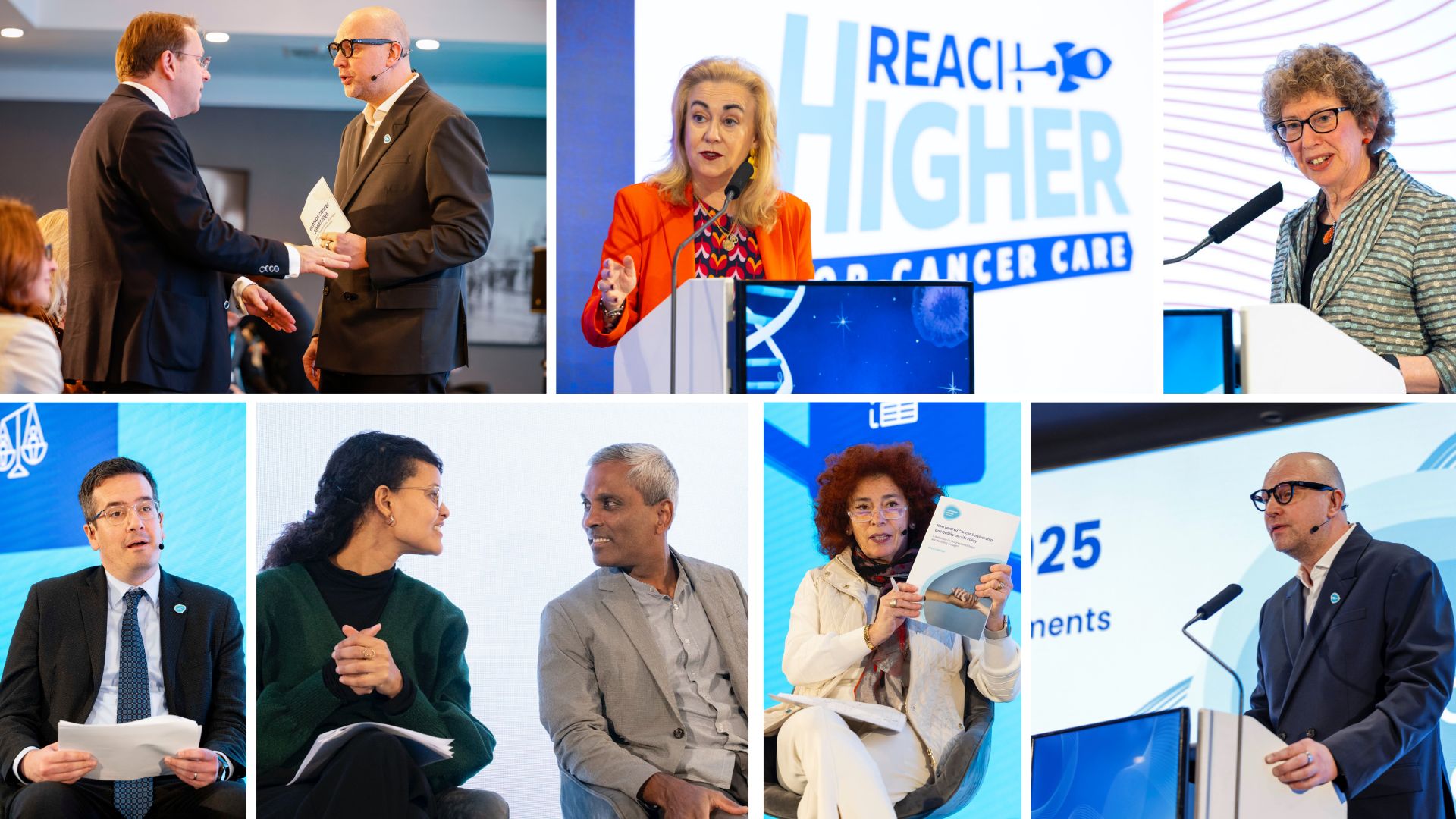
The European Cancer Summit 2025 united the cancer community for an exceptional edition, fit for exceptional times.
This year's Summit focused on the urgent need to secure sustained political and financial support for cancer as a health and societal priority. It provided a unique setting for healthcare professionals, patients and policymakers to tackle challenges from every perspective and work together towards developing solutions and uncovering opportunities.
This year’s theme underpinned the sessions, which were shaped by the work of the European Cancer Organisation (ECO) and its nine Focused Topic Networks:
Cancer in a Changing Global Landscape: Cancer care and research are being reshaped by global instability and shrinking support for international cooperation, creating far-reaching challenges for Europe and beyond.
Challenges & Commitments: As the political agenda of the European Union shifts to address geopolitical challenges, the cancer community must rally - drawing strength from the achievements of Europe’s Beating Cancer Plan and the Cancer Mission - to ensure quality cancer care remains a health priority but also a pillar of resilience, innovation, and strategic autonomy.
This year's European Cancer Summit was chaired by:
- Kathy Oliver, Co-Chair, Patient Advisory Committee, European Cancer Organisation
- Nicolò Battisti, Co-Chair, Inequalities Network, European Cancer Organisation
Speakers
-
Olivér Várhelyi European Commissioner for Health and Animal Welfare
-
Nicolae Ștefănuță MEP Vice-President, European Parliament & Substitute, Committee on Public Health
-
Romana Jerković MEP Vice-Chair, Committee on Public Health
-
Tomislav Sokol MEP Member, Committee on Public Health & Co-Chair, European Parliament Intergroup on Cancer and Rare Diseases
-
Nicolás González Casares MEP Member, Committee on Public Health, European Parliament
-
Billy Kelleher MEP Substitute, Committee on Public Health
Speakers
-
Olivér Várhelyi European Commissioner for Health and Animal Welfare
-
Nicolae Ștefănuță MEP Vice-President, European Parliament & Substitute, Committee on Public Health
-
Romana Jerković MEP Vice-Chair, Committee on Public Health
-
Tomislav Sokol MEP Member, Committee on Public Health & Co-Chair, European Parliament Intergroup on Cancer and Rare Diseases
-
Nicolás González Casares MEP Member, Committee on Public Health, European Parliament
-
Billy Kelleher MEP Substitute, Committee on Public Health
-
Olivér Várhelyi European Commissioner for Health and Animal Welfare
-
Nicolae Ștefănuță MEP Vice-President, European Parliament & Substitute, Committee on Public Health
-
Romana Jerković MEP Vice-Chair, Committee on Public Health
-
Tomislav Sokol MEP Member, Committee on Public Health & Co-Chair, European Parliament Intergroup on Cancer and Rare Diseases
-
Nicolás González Casares MEP Member, Committee on Public Health, European Parliament
-
-
Emma Rafowicz MEP Member, Committee on Women’s Rights and Gender Equality, European Parliament
-
Brando Benifei MEP Co-Rapporteur, EU Artificial Intelligence Act, European Parliament
-
Maria Elena Scoppio Director for Indirect Taxation and Tax Administration, DG TAXUD, European Commission Read Bio
-
Saila Rinne Head of the Artificial Intelligence, Health and Life Sciences Unit, European AI Office, European Commission Read Bio
-
Matthias Schuppe Deputy Head of the Cancer, Health in All Policies Unit, Directorate General for Health and Food Safety, European Commission Read Bio
-
Annika Nowak Head of Sector, Cancer Mission Secretariat, Directorate-General Research and Innovation, European Commission Read Bio
-
Sandra Caldeira Head of the Disease Prevention Unit, Joint Research Centre, European Commission
-
Eric Adrien Policy Officer, Emergency Response Operations: Middle East Region/Medical Evacuations, European Commission
-
Christine Chomienne Vice Chair, EU Cancer Mission Board & Co-Chair, Research Policy Network, European Cancer Organisation (ECO) Read Bio
-
Isabelle Soerjomataram Deputy Head of the Cancer Surveillance Branch, International Agency for Research on Cancer (IARC) Read Bio
-
Charlotte Poulussen Policy Advisor, Deputy Prime Minister and Minister of Public Health, Belgium Read Bio
-
Sandrine Daoud Advisor and Spokesperson of Frank Vandenbroucke, Minister of Social Affairs & Public Health Read Bio
-
-
-
Matti Aapro Board Member, Union for International Cancer Control (UICC) & Past-President, European Cancer Organisation (ECO) Read Bio
-
Roy A. Jensen Vice Chancellor and Director, University of Kansas Cancer Center
-
-
Tit Albreht Head of the Centre for Health Care, National Institute of Public Health of Slovenia Read Bio
-
Brian Huntly President-Elect, European Hematology Association (EHA) & Head of Department of Hematology, University of Cambridge Read Bio
-
Simon Oberst Board Member and Quality & Accreditation Director, Organisation of European Cancer Institutes (OECI) Read Bio
-
-
Isabel Rubio President-Elect & Co-Chair, Prevention, Early Detection and Screening Network, European Cancer Organisation (ECO) Read Bio
-
Andreas Charalambous Founder and Chair, European Cancer Community Foundation & Professor in Oncology and Palliative Nursing Care, Cyprus University of Technology & Adjunct Professor (Docent), University of Turku Read Bio
-
Kathy Oliver Co-Chair, European Cancer Summit & Co-Chair, Patient Advisory Committee, European Cancer Organisation (ECO) Read Bio
-
Nicolò Matteo Luca Battisti Co-Chair, European Cancer Summit & Co-Chair, Inequalities Network, European Cancer Organisation (ECO) Read Bio
-
Gilliosa Spurrier-Bernard Co-Chair, Patient Advisory Committee, European Cancer Organisation (ECO) Read Bio
-
Debra Montague President, Lung Cancer Europe (LuCE) & Member, Patient Advisory Committee, European Cancer Organisation (ECO) Read Bio
-
Hugo Soares Science Manager, Agency for Clinical Research and Biomedical Innovation (AICIB) Read Bio
-
Marc van den Bulcke Head of Service, Belgian Cancer Centre, Sciensano
-
Yannick Romero Senior Knowledge and Advocacy Manager, Union for International Cancer Control (UICC) Read Bio
-
Tanja Španić Executive Director, Europa Donna Slovenia & Past-President Europa Donna – The European Breast Cancer Coalition
-
-
Sarah Collen Co-Chair, Inequalities Network, European Cancer Organisation (ECO)
-
Luis Seijo Co-Chair, Prevention, Early Detection and Screening Network, European Cancer Organisation (ECO)
-
Annemiek Snoeckx Co-Chair, Digital Health Network, European Cancer Organisation (ECO)
-
-
Luzia Travado Co-Chair, Survivorship and Quality of Life Network, European Cancer Organisation (ECO) Read Bio
-
Anne Letsch Co-Chair, Survivorship and Quality of Life Network, European Cancer Organisation (ECO) Read Bio
-
-
-
-
Yolande Lievens Co-Chair, Health Systems and Quality Cancer Care Network, European Cancer Organisation (ECO)
-
Piotr Rutkowski Co-Chair, Health Systems and Quality Cancer Care Network, European Cancer Organisation (ECO)
-
-
Jacek Jassem Co-Chair, Emergencies and Crises Network, European Cancer Organisation (ECO)
-
-
Amil Družić Vice-Chair, HPV and Hep B Action Network, European Cancer Organisation (ECO)
-
Nikolina Dodlek Research Associate, Department for Nursing, Cyprus University of Technology, Cyprus & Young Cancer Professionals Steering Committee Member Read Bio
-
Robbe Saesen Vice-Chair, Digital Health Network, European Cancer Organisation & Scientist, Sciensano, Belgium
-
Rudi Dierckx Board Member, European Cancer Organisation (ECO) & Professor in Nuclear Medicine, University of Groningen Read Bio
-
Rachel Giles President, VHL Europa
-
Ariane Weinman Public Affairs Senior Manager, EURORDIS - Rare Diseases Europe
-
Régine Kiasuwa Mbengi Head of Supportive Care and Organisation Unit & Scientist, BE Cancer Center & Department of Epidemiology and Public Health, Sciensano Read Bio
-
Thubeena Manickavasagar Research Fellow, Lung Cancer Unit, The Royal Marsden NHS Foundation Trust, United Kingdom Read Bio
-
Karam Adel Principal Expert Policy Coordination and Strategic Affairs, European Centre for Disease Prevention and Control (ECDC) Read Bio
-
-
-
-
Paolo Berti Cancer Survivor
-
Ellis Slotman Postdoctoral Researcher, Netherlands Comprehensive Cancer Organisation (IKNL) Read Bio
-
-
Severien Van Keer Senior postdoctoral researcher FWO and Assistant Professor, University of Antwerp Read Bio
-
-
Muriel O'Byrne Senior Vice-President, International Regulatory Affairs, Regeneron
-
-
-
-
Leonor Cerdá-Alberich Co-PI and Head of Computing and AI, Biomedical Imaging Research Group, La Fe Health Research Institute
-
Nicoletta Luppi Senior Vice President and Managing Director, MSD Italia & Board Member, Vaccines Europe Read Bio
-
-
-
Speakers
-
Olivér Várhelyi European Commissioner for Health and Animal Welfare
-
Nicolae Ștefănuță MEP Vice-President, European Parliament & Substitute, Committee on Public Health
-
Romana Jerković MEP Vice-Chair, Committee on Public Health
-
Tomislav Sokol MEP Member, Committee on Public Health & Co-Chair, European Parliament Intergroup on Cancer and Rare Diseases
-
Nicolás González Casares MEP Member, Committee on Public Health, European Parliament
-
Billy Kelleher MEP Substitute, Committee on Public Health
Registration closed
Speakers
-
Olivér Várhelyi European Commissioner for Health and Animal Welfare
-
Nicolae Ștefănuță MEP Vice-President, European Parliament & Substitute, Committee on Public Health
-
Romana Jerković MEP Vice-Chair, Committee on Public Health
-
Tomislav Sokol MEP Member, Committee on Public Health & Co-Chair, European Parliament Intergroup on Cancer and Rare Diseases
-
Nicolás González Casares MEP Member, Committee on Public Health, European Parliament
-
Billy Kelleher MEP Substitute, Committee on Public Health
European Cancer Summit 2025 Programme
Wednesday 19 November
08:30-09:00 |
Registration |
|
|
After registration and badge printing, delegates could head upstairs for coffee and a continental breakfast before the day's sessions began. |
09:00-09:15 |
Opening Session |
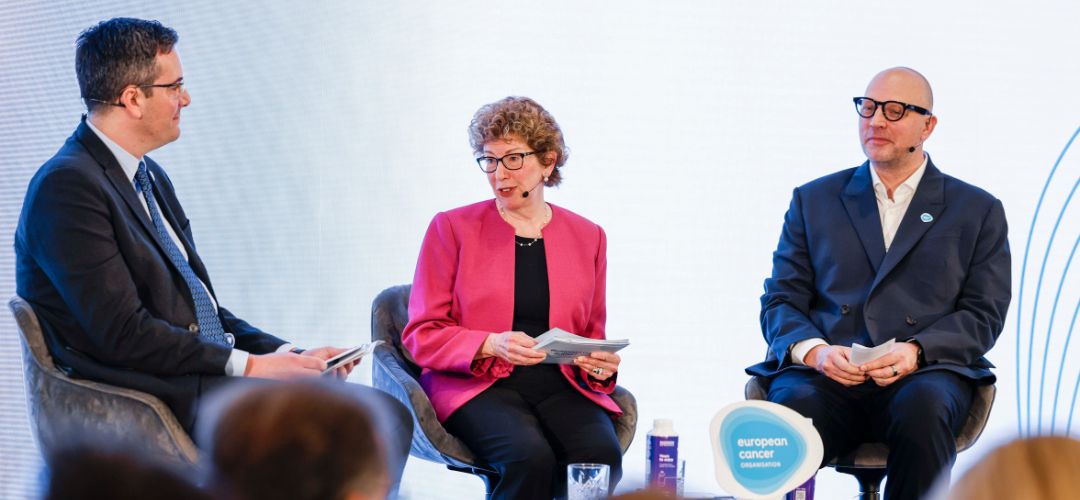 |
|
|
|
With:
The session recording is now available here. |
09:15-09:35 |
Keynote session with Olivér Várhelyi, European Commissioner for Health and Animal Welfare |
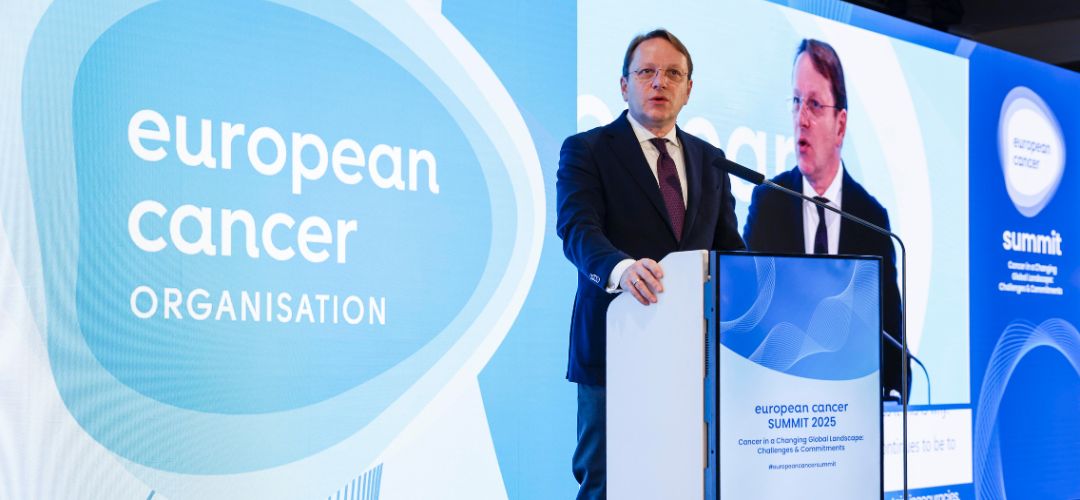 |
|
|
The session recording is now available here. |
|
09:35-09:40 |
Transition break |
09:40-10:55 |
Breaking Barriers: Confronting Bias, Seen and Unseen, in Cancer Care |
|
|
Organised by the Inequalities Network |
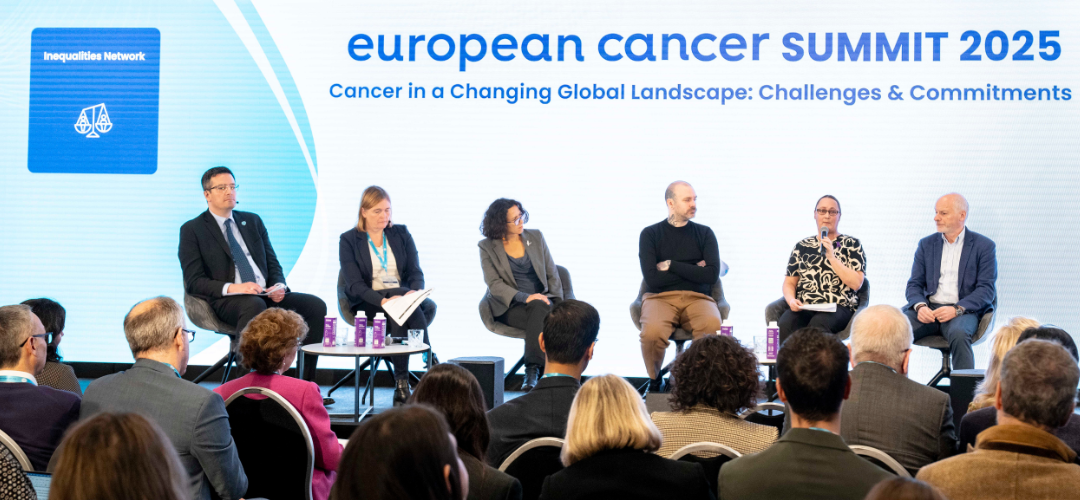 |
|
|
|
Cancer does not affect all people equally. Gender and sexual identity can be important determinants of cancer and health outcomes. In this session, we focused on how women and LGBTIQ individuals often faced unique barriers in cancer prevention, screening, diagnosis, and treatment—barriers rooted in social, economic, and structural inequalities. From disparities in access to screening programmes to bias in medical research and healthcare delivery, these gaps could lead to delayed diagnoses, poorer outcomes, and increased suffering.
|
|
With network co-chairs Nicolò Battisti and Sarah Collen, including speakers:
The session recording is available here. |
|
09:45-10:45 |
Special meeting: HPV Elimination in Southeast Europe |
|
This side meeting gathered key stakeholders and experts from Southeast Europe to discuss new initiatives to advance HPV elimination. Building on ECO’s earlier country-level efforts, the campaign had now expanded to a regional level. The session shared key achievements, highlighted progress across participating countries, and outlined the next steps for ECO and its partners in the area. |
|
10:55-11:20 |
Coffee Break |
11:20-12:35 |
Not Just Treatment: The Power of Prevention and Cancer Screening |
|
|
Organised by the Prevention, Early Detection and Screening Network |
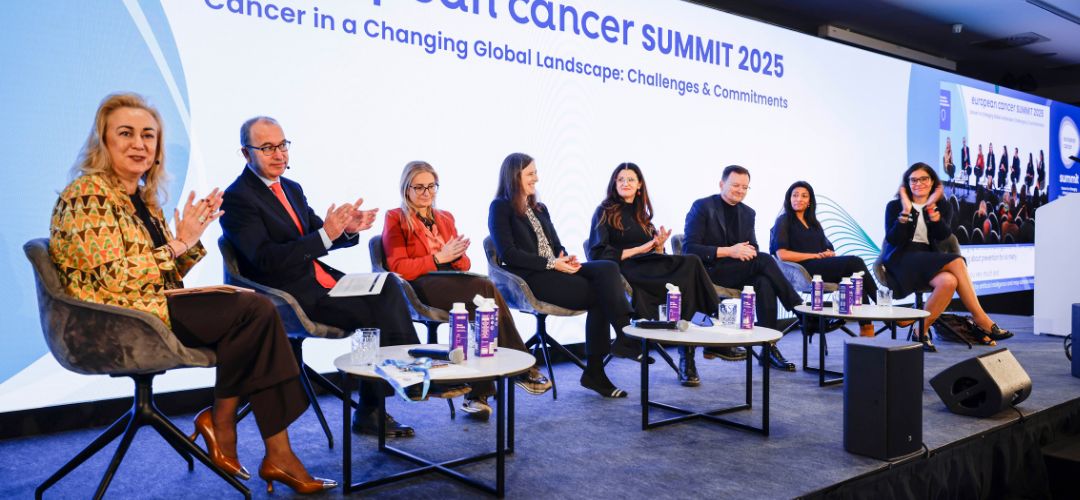 |
|
|
|
While groundbreaking advancements in treatment continue to save lives, the reality is that too many cancers remain preventable, and too many diagnoses come too late. It is time to strengthen action in critical areas such as tobacco, screening, and early detection. Tobacco use remains the leading preventable cause of cancer, responsible for nearly 27% of all cases across the EU. Despite regulatory progress, new challenges emerge, particularly with the rising use of novel tobacco products such as e-cigarettes and nicotine pouches. Stricter regulation is needed to protect young people and prevent addiction. At the same time, new technologies in early detection offer an opportunity to transform cancer outcomes by identifying the disease at its earliest, most treatable stages. Through this session, we explored how Europe could take decisive action to accelerate prevention efforts, modernise screening practices, and build a future where fewer lives were lost to cancer |
|
With network co-chairs Isabel Rubio and Luis Seijo, including speakers:
The session recording is now available here. Download the Time to Accelerate: for Cancer Screening Report here. |
|
11:30-12:30 |
Special meeting: Hepatitis & Liver Cancer: Challenges and Action |
|
This session examined the current status of hepatitis and liver cancer in the European region, highlighted ongoing EU efforts to reduce caseloads, showcased best practices and examples, and addressed the plight of migrants. It also presented ECO’s upcoming priorities and next steps in tackling these challenges. |
|
11:50-12:20 |
Spotlight: Investing for Impact – taking EU cancer policy to the next level |
|
Europe’s cancer community stood at a crossroads. As the EU prepared its next Multiannual Financial Framework, the future of cancer policy and the momentum of Europe’s Beating Cancer Plan hung in the balance. This side meeting at the European Cancer Summit explored what was at stake, how united action could accelerate progress, and what lay ahead for 2026 and 2027. Together, we sought to take EU cancer policy to the next level, investing in efforts that provided impact and hope for millions. |
|
12:35-13:35 |
Networking Lunch & Poster Presentations |
13:35-14:50 |
Towards the Finish Line: Accelerating Momentum for HPV-related Cancers Elimination in Europe |
|
|
Organised by the HPV & Hep B Action Network |
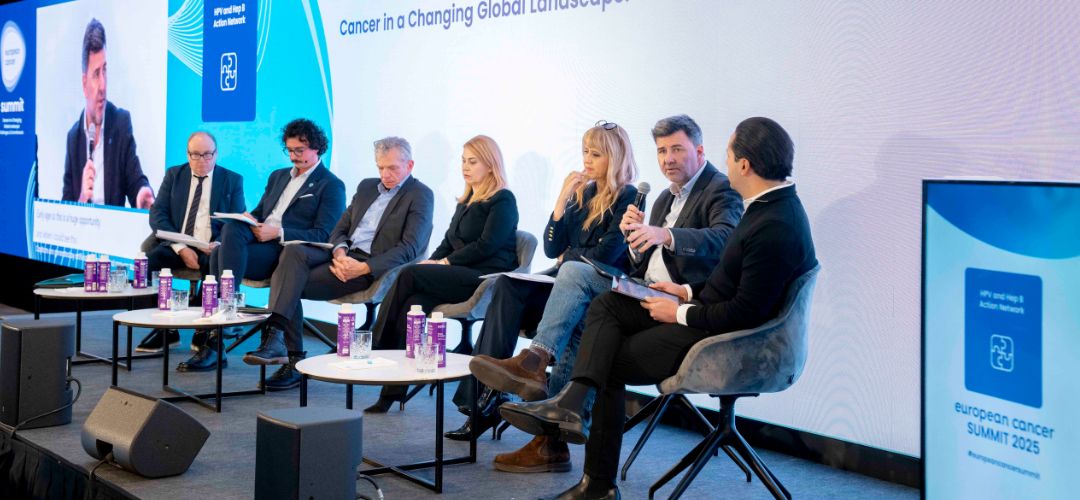 |
|
|
|
Europe is making significant strides towards a major public health milestone: the elimination of HPV-related cancers. Thanks to growing political commitment, scientific advancements, and strengthened regional cooperation, this once-distant goal is now within reach. However, achieving elimination requires sustained momentum, strategic execution, and collective action to translate progress into measurable impact. This session acknowledged that we were at a critical turning point, shifting from planning to implementation. It showcased the key tools, data, and partnerships driving this transition, including insights from the latest ECO paper on cervical cancer and HPV screening, updates from the ECDC on HPV vaccination monitoring, and the forthcoming revision of the HPV Elimination Atlas. The message behind this session is clear: Europe is making significant progress, and now is the time to accelerate efforts. Success depends not only on scaling effective strategies, but also on ensuring that progress reaches every country, every community, and every patient. |
|
With network co-chair Daniel Kelly and vice-chair Amil Družić, including speakers:
The session recording is now available here. Download the policy paper on cervical cancer here. |
|
13:40-14:40 |
Special meeting: Young Cancer Professionals Networking Meeting |
|
Participants were invited to join this informal gathering to connect with early-career medical professionals and share experiences, explore opportunities for collaboration, and grow their professional networks. Whether or not they were members of the Young Cancer Professionals Group, they came together to meet peers passionate about improving cancer care and to discover what the group had to offer. |
|
14:00-14:30 |
Spotlight: What does cancer care look like in rural Europe? |
|
This spotlight brought together cancer community stakeholders to explore how to build on existing evidence and international experiences. The discussion examined knowledge gaps, ongoing initiatives, and opportunities for collaboration to address the cancer inequalities faced by rural populations. The meeting served as a first step towards shaping a coordinated European effort to improve access, outcomes, and policy responses for cancer patients in rural areas. |
|
14:50-15:00 |
Transition break |
15:00-15:50 |
Young Cancer Voices shaping tomorrow’s European Cancer Policy |
|
Organised by the ECO Young Cancer Professionals Group |
|
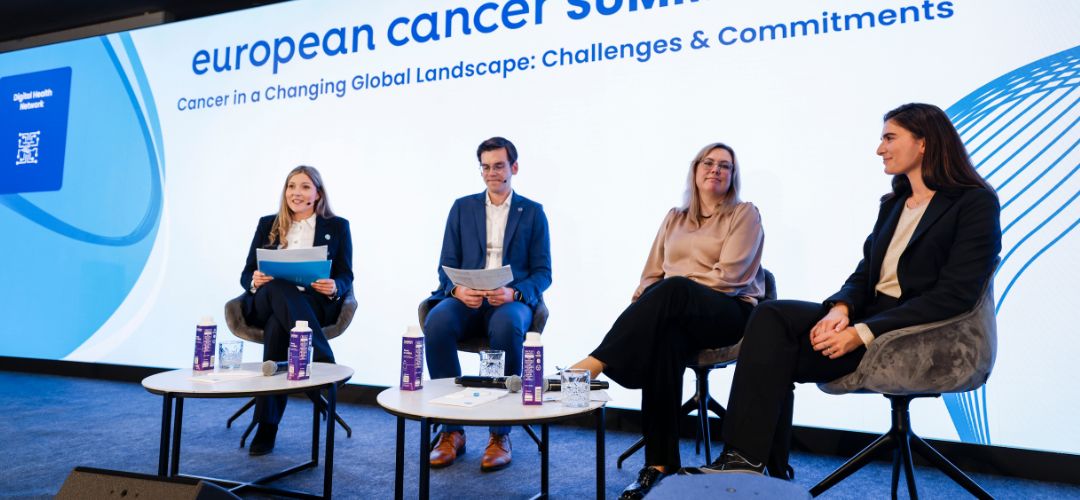 |
|
|
In this forward-looking session, young cancer professionals and policymakers took the stage to share their vision for tomorrow’s cancer policy. Drawing from frontline experience and fresh policy insight, these young leaders reflected on emerging public health threats facing the next generation and explored how to address them. Through a dynamic exchange, they presented their vision for a future European Cancer Policy that could secure ambitious progress in cancer prevention, care, and equity across the continent. |
|
|
With session co-chairs Nikolina Dodlek and Robbe Saesen, including speakers:
The session recording is now available here. |
|
15:50-16:20 |
Coffee break |
16:20-17:35 |
Artificial Intelligence and Cancer Care: A Paradigm Shift in Progress |
|
|
Organised by the Digital Health Network |
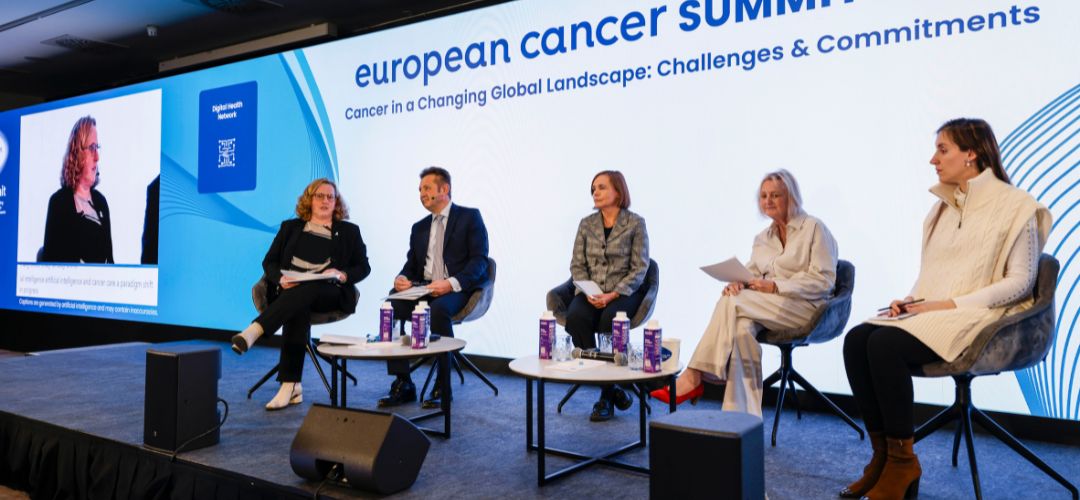 |
|
|
|
Artificial intelligence (AI) is transforming oncology, offering new possibilities for prevention, early detection, personalised treatment, and advanced research. As AI-driven tools become more integrated into cancer care, they hold the potential to enhance diagnostic accuracy, optimise clinical workflows, and improve patient outcomes. This session explores key cross-cutting themes identified in the ECO report on AI, including AI literacy and education, trust and ethics, and the pivotal role of data in the digitalisation of cancer care. As AI technologies evolve, it is critical to ensure that healthcare professionals are equipped with the knowledge to interpret and utilise AI-generated insights effectively. Similarly, ethical considerations, ranging from data privacy to the role of AI in medical decision-making, remain central to discussions on implementation. These foundational topics guide the conversation, complemented by real-world examples and concrete AI applications across the cancer care continuum: from prevention and early detection to treatment and survivorship. |
|
With network co-chairs Annemiek Snoeckx, and Alex Eniu, including speakers:
The session recording is now available here. Download the report on AI and cancer here. |
|
16:30-17:30 |
Special meeting: Healthy Ageing and Cancer: Bridging Evidence and EU Policy |
|
This meeting brought together EU Navigate and SIOG to explore how evidence on navigation programmes for older people can inform EU policy. As the policy landscape shifts, older adults and other vulnerable groups risk being overlooked. The discussion examined ageing as a key societal factor and the role of ‘healthy ageing’, giving participants a practical opportunity to contribute ideas that can shape EU actions across generations in the coming year. |
|
16:50-17:35 |
Spotlight: Building Momentum to Improve Men’s Health and Reduce Prostate Cancer |
|
This spotlight session, organised under the Men & Cancer Workstream of the European Cancer Organisation’s Inequalities Network, highlighted the urgent need for stronger political commitment and investment in prostate cancer care across Europe, as well as attention to various men’s health conditions. Experts, clinicians, and patient advocates discussed lessons from national screening projects, policy progress, and the next steps toward a coordinated European strategy. Insights will feed into ECO’s forthcoming commentary report in 2026. |
|
17:35-18:15 |
Presenting the top abstracts from ECO’s Young Cancer ProfessionalsModerated by Gilliosa Spurrier-Bernard and Rudi Dierckx, including presentations from:
Announcing the Rising Star Grants from the European Cancer Community Foundation
|
18:15-20:15 |
Networking Reception at the Summit venue |
Thursday 20 November
08:15-08:45 |
Registration |
|
|
After registration and badge printing, delegates could head upstairs for coffee and a continental breakfast before the day's sessions began. |
08:45-10:00 |
Cancer Survivorship and Quality of Life: Is Europe Doing Enough? |
|
|
Organised by the Survivorship & Quality of Life Network |
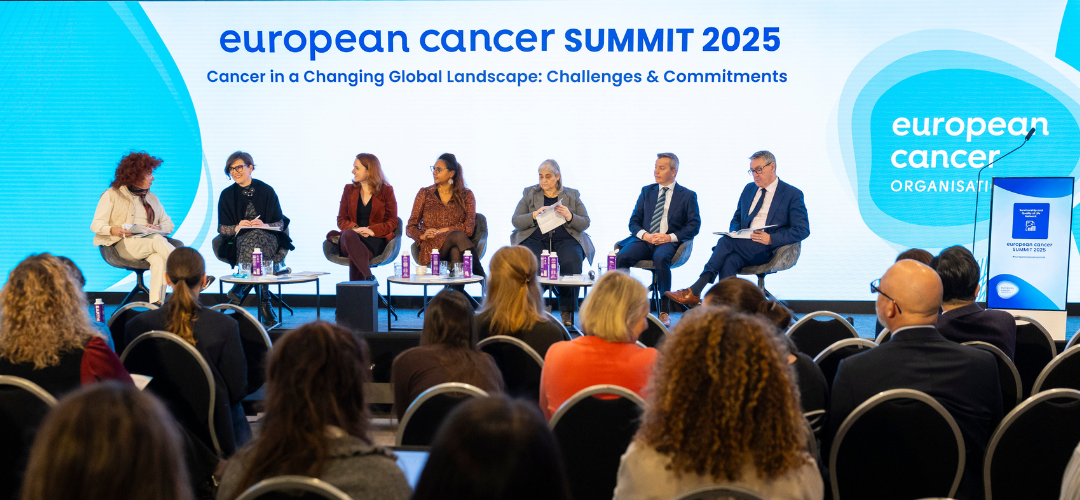 |
|
|
|
Surviving cancer in Europe today is about more than just overcoming the disease - it is about actively restoring a person's quality of life after treatment. While medical advancements have improved survival rates, the physical, psychological, and social challenges that follow are often underestimated. From lingering health complications and financial insecurity to emotional distress and societal stigma, survivors navigate a complex post-treatment reality that demands more attention. But is Europe doing enough to support them? This session began with a powerful survivor testimony, shedding light on the lived experience of cancer survivorship. It then explored how EU policies on survivorship and quality of life have evolved, guided by insights from the new ECO Survivorship and Quality of Life Paper. We examined best practices, EU-funded research, and evidence-based guidelines, identifying where progress has been made and where barriers to implementation persist. |
|
With network co-chairs Luzia Travado and Anne Letsch, including speakers:
The session recording is now available here. Download the new report on cancer survivorship here. |
|
09:30-10:00 |
Spotlight: Informing Cancer Policy Change through Data and Analysis: Insights from the European Cancer Pulse (ECO) and the OBS-PACE project |
|
How can we best use data to drive better cancer control in Europe? This session showcased the European Cancer Pulse, a leading tool to illustrate evidence and address cancer inequalities between and within countries. Updates were shared on the evolution of the Pulse data tool and its content, as well as the development of European Cancer Pulse outputs, such as Country Reports and Policy Indexes. Discussions held during the meeting contributed to guiding the policy research work of the European Cancer Organisation for 2026. |
|
10:00-10:20 |
Coffee Break |
10:20-11:35 |
Strengthening the Oncology Workforce: Addressing Shortages, Well-being, and Future Skills |
|
|
Organised by the Workforce Network |
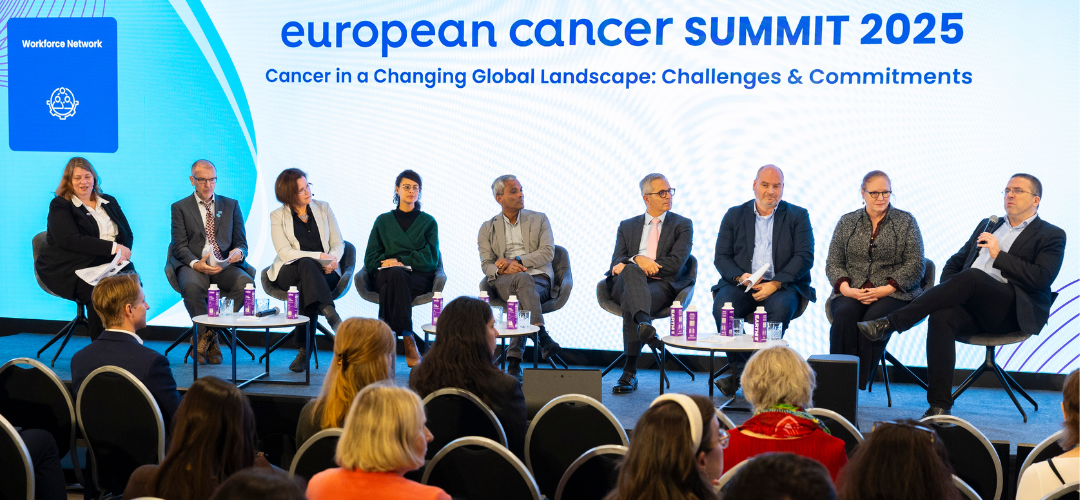 |
|
|
|
The oncology workforce is facing growing challenges, with staff shortages, increasing workload, and rising levels of burnout placing enormous pressure on healthcare professionals. The demand for cancer care is rising, driven by an ageing population, higher cancer incidence, and more complex treatment protocols, yet the workforce tasked with delivering care is struggling to keep pace. At the same time, cancer care is evolving rapidly, reflecting scientific and technological advancements that require new skill sets and continuous education and professional development. This session examined both the challenges and solutions needed to create a resilient and future-ready oncology workforce. It explored strategies to retain and support professionals, highlighting the importance of healthy work environments. The discussion also focused on how to ensure that education and professional development programmes evolve to meet the demands of new technologies, digital healthcare, and emerging treatment approaches. |
|
With network co-chairs Wendy Oldenmenger, Mirjam Crul, and Wim Ceelen, including speakers:
The session recording is now available here. |
|
11:35-11:45 |
Transition break |
11:45-13:00 |
National Cancer Control Plans in Focus: Lessons, Challenges, and Future Directions |
|
|
Organised by the Health Systems & Quality Cancer Care Network |
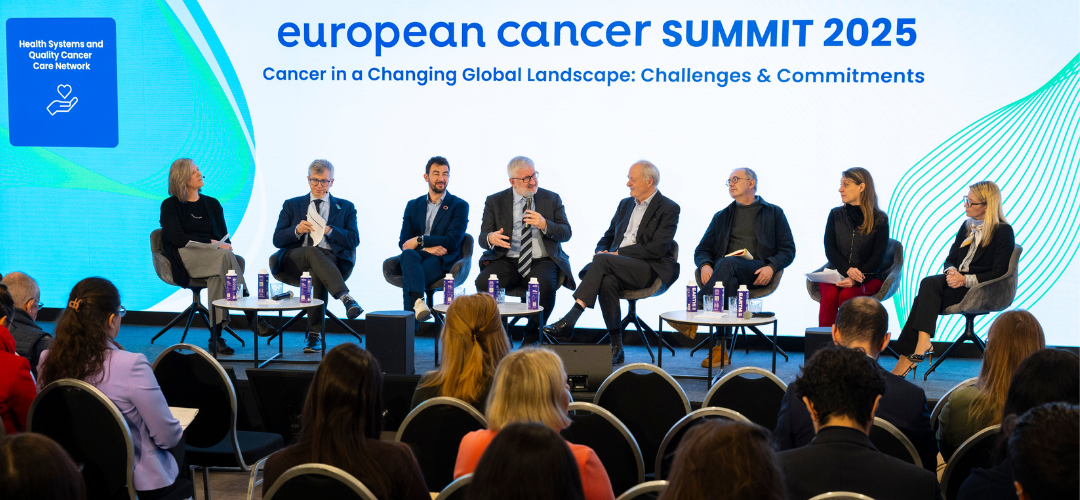 |
|
|
|
National cancer control plans play a crucial role in reducing the burden of cancer, providing a roadmap to design and implement efficient prevention and control that takes into account the context of a country’s cancer burden, risk factors, prevalence, available resources, sociocultural environment and so on. As countries across Europe develop or refine their cancer strategies, valuable insights emerge from reviewing existing cancer plans to analyse what has worked and where gaps exist. This session brought together experts who have conducted comprehensive analyses of cancer plans, together with policymakers responsible for developing and implementing cancer plans. They debated learnings we can draw from existing plans and how to overcome implementation challenges, as well as explored innovative solutions to foster more coordinated, impactful, and patient-centred cancer policies. |
|
With network co-chairs Yolande Lievens, and Piotr Rutkowski, including speakers:
The session recording is now available here. |
|
12:30-13:00 |
Spotlight: United by Cancer, Driven by Community: The Story of the European Cancer Community Foundation |
|
This session explored the powerful story of this growing philanthropic effort, how a shared commitment and collaboration gave rise to a movement supporting unmet needs within Europe’s cancer community. Delegates heard from inspiring laureates whose work exemplifies the Foundation’s mission and impact across Europe. |
|
13:00-14:00 |
Networking Lunch |
14:00-15:15 |
Bringing European Cancer Research to the Next Level: Cooperation, Innovation and Transformation |
|
Organised by the Research Policy Network |
|
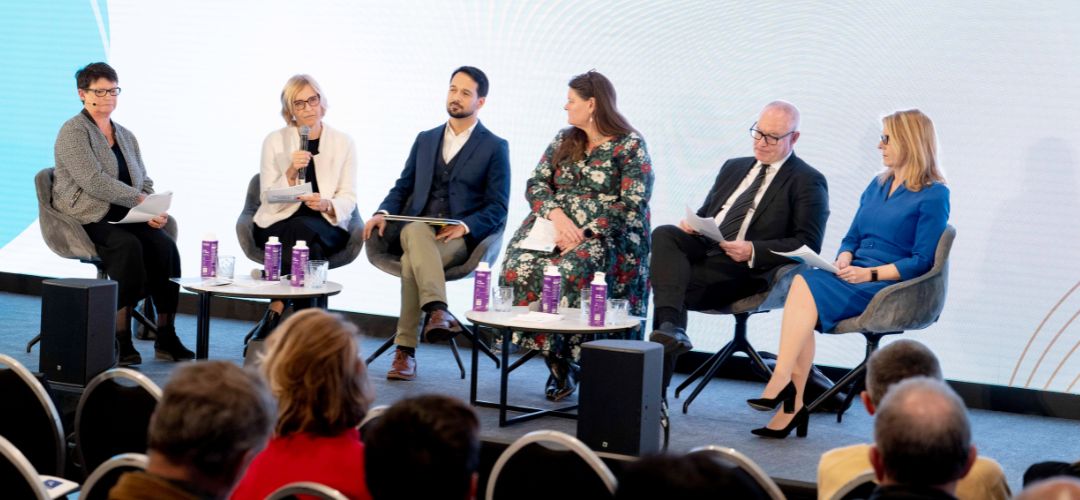 |
|
|
EU action on health and life sciences research, including the EU Cancer Mission, has played a pivotal role in shaping the future of cancer control across Europe. By fostering cutting-edge scientific discovery, supporting large-scale collaborative projects, and championing patient-centred innovation, these initiatives have laid a strong foundation for tackling one of Europe’s most pressing health challenges. Yet the path forward requires even greater ambition. Stronger coordination, long-term strategic goals, the integration of diverse expertise, and the pooling of resources will be key to bringing European research to the next level and ensuring that research and innovation translate into improved outcomes across all European regions. This session reflected on the progress achieved and defined the next level of ambition for European cancer research. Together, we explored how strengthened cooperation and a more unified vision can accelerate discovery, inform policy, and drive impactful, sustainable change to reduce the burden of cancer. |
|
|
With network co-chair Christine Chomienne, including speakers:
The session recording is now available here. Download the green paper on cancer research here. |
|
14:30-15:15 |
Spotlight: Advancing Multidisciplinary Cancer Training Across Europe: The INTERACT-EUROPE 100 Experience |
|
This spotlight explored how the INTERACT-EUROPE 100 programme is being implemented within cancer centres across Europe. Speakers shared experiences of applying inter-specialty and inter-professional training within their institutes - highlighting how it helps connect disciplines, strengthen collaboration and build momentum toward more integrated cancer training through shared learning among doctors, nurses and other professionals. |
|
15:15-15:35 |
Coffee break |
15:35-16:50 |
When Time Is of the Essence: Strengthening Cancer Care in Times of Emergencies and Crises |
|
|
Organised by the Emergencies & Crises Network |
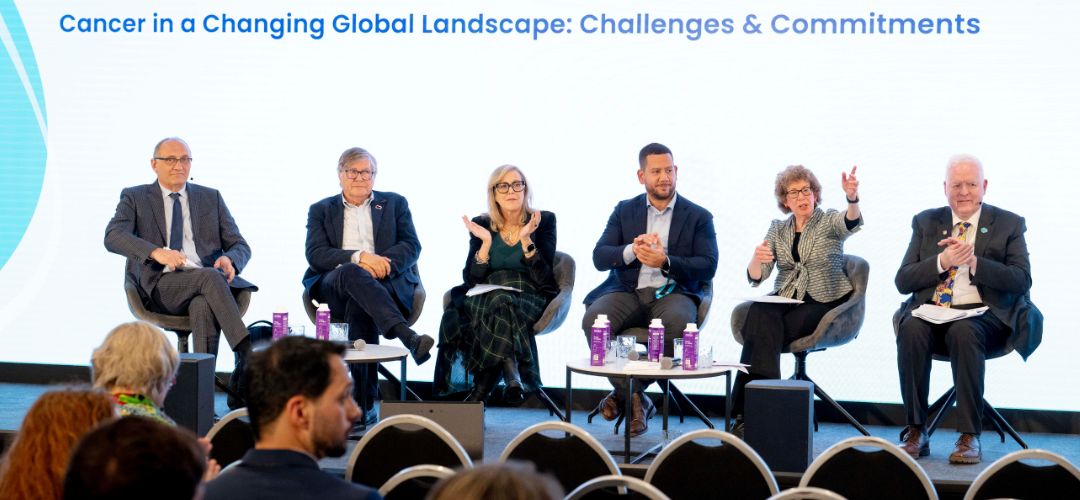 |
|
|
|
Emergencies and crises have become a recurring challenge for our healthcare systems in recent times. On top of many conflicts throughout the world, first came the COVID-19 pandemic, then the war in Ukraine, followed by the conflict in Gaza, and now the growing trade war, which risks exacerbating medicine shortages. There is also the increasing challenge for cancer patients related to antimicrobial resistance (AMR). These crises have had profound implications for cancer care, leading to disruptions in treatment, delays in diagnoses, and ultimately, the loss of lives and suffering for countless patients and their families. By joining forces, we are much stronger in addressing these challenges, finding solutions, and building resilience within our healthcare systems. Only through united efforts can we safeguard the progress made in cancer care and ensure that patients receive the timely, uninterrupted treatment they deserve. Europe’s Beating Cancer Plan and the EU Cancer Mission have proven to be powerful catalysts for joint action across borders in the fight against cancer. Now is the time to reinforce commitment and ensure that cancer care remains a priority even in times of crisis. |
|
With network co-chairs Mark Lawler, and Jacek Jassem, including speakers:
The session recording is now available here. |
|
16:50-17:00 |
Closing session |
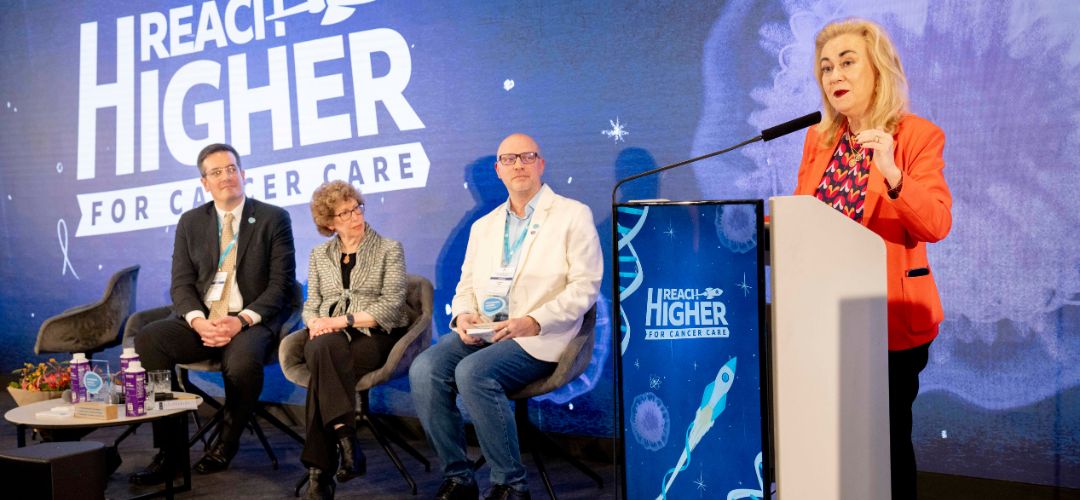 |
|
|
|
With:
The session recording is now available here. |
17:00 - 18:30 |
ECHoS Town Hall Welcome Reception |
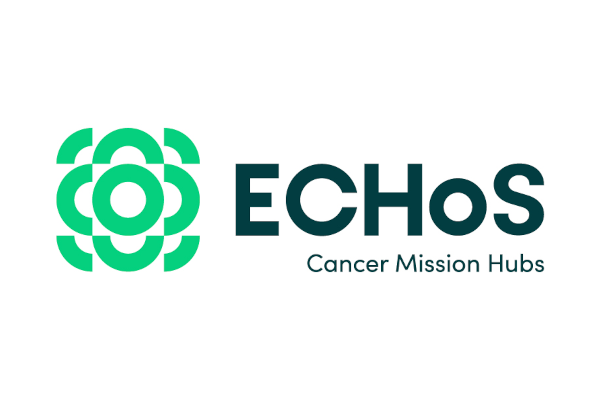 |
The Parlour, Radisson Collection Hotel Ground Floor
|
Friday 21 November
09:00-14:00 |
ECHoS Town Hall Meeting |

|
This event brought together key stakeholders from both the ECHoS project and the ECO community to reflect, connect, and shape the future of the EU Mission on Cancer and the Europe’s Beating Cancer Plan (EBCP) through the lens of National Cancer Mission Hubs (NCMHs). Held on the day after the European Cancer Summit 2025, this event was an opportunity to provide input into the implementation of NCMHs in individual countries, share knowledge and plan for future actions. Check out the full programme here. |
Speakers
-
Olivér Várhelyi European Commissioner for Health and Animal Welfare
-
Nicolae Ștefănuță MEP Vice-President, European Parliament & Substitute, Committee on Public Health
-
Romana Jerković MEP Vice-Chair, Committee on Public Health
-
Tomislav Sokol MEP Member, Committee on Public Health & Co-Chair, European Parliament Intergroup on Cancer and Rare Diseases
-
Nicolás González Casares MEP Member, Committee on Public Health, European Parliament
-
Billy Kelleher MEP Substitute, Committee on Public Health
2025 Call for Abstracts
Following the success of three consecutive years of abstract submissions, and as part of our Young Cancer Professionals (YCP) group, the European Cancer Organisation is pleased to announce the 2025 selected abstracts.
Visit the dedicated page to discover the 19 outstanding posters and their authors.
Summit delegates had the chance to exchange with the authors and find out more about their research during the Networking & Poster Presentations Lunch in the Luxembourg room on Wednesday, 19 November.
After the Summit, the abstracts are published in the Journal of Cancer Policy.
But there's more! Three authors were selected to present their work during a special session chaired by Gilliosa Spurrier-Bernard and Rudi Dierckx, on Wednesday, 19 November. The presenters were:
- Severien Van Keer, Senior postdoctoral researcher FWO and Assistant Professor, University of Antwerp
- Ellis Slotman, Postdoctoral Researcher, Netherlands Comprehensive Cancer Organisation (IKNL)
- Fairley Le Moal, Scientific Director, Seintinelles, France
General Information
Every year, abstract submissions are open to lead authors aged 40 or younger as of 15 November 2025, (and therefore eligible to join the ECO Young Cancer Professionals group). We strongly encourage junior clinicians and academics to submit as lead authors. A maximum of 20 outstanding abstracts will be chosen for display in the Poster Exhibition at the Summit in Brussels on 19-20 November 2025, with authors invited to introduce their work during the event. From these, up to three will be selected to deliver a formal presentation at the European Cancer Summit. Only young cancer professionals listed as authors on the abstract submission will be eligible for a presentation. (Please note that applications to join the YCP group should be made separately by contacting ycp@europeancancer.org)
ECO is committed to delivering equitable and effective cancer care globally, translating the best evidence to policy and practice. Research abstracts must fit within our key Focused Topic Networks, which cover all priority areas of Europe’s Beating Cancer Plan and EU Cancer Mission recommendations.
You can find the abstracts selected from the European Cancer Summit 2024 here.
Review process
Each abstract is blindly reviewed by the Co-Chairs of the relevant Focused Topic Network and ECO board-appointed reviewers. The submitted abstracts are evaluated according to an abstract scoring grid. Reviewers will use the scoring grid as a reference framework during evaluation.
Speakers
-
Olivér Várhelyi European Commissioner for Health and Animal Welfare
-
Nicolae Ștefănuță MEP Vice-President, European Parliament & Substitute, Committee on Public Health
-
Romana Jerković MEP Vice-Chair, Committee on Public Health
-
Tomislav Sokol MEP Member, Committee on Public Health & Co-Chair, European Parliament Intergroup on Cancer and Rare Diseases
-
Nicolás González Casares MEP Member, Committee on Public Health, European Parliament
-
Billy Kelleher MEP Substitute, Committee on Public Health
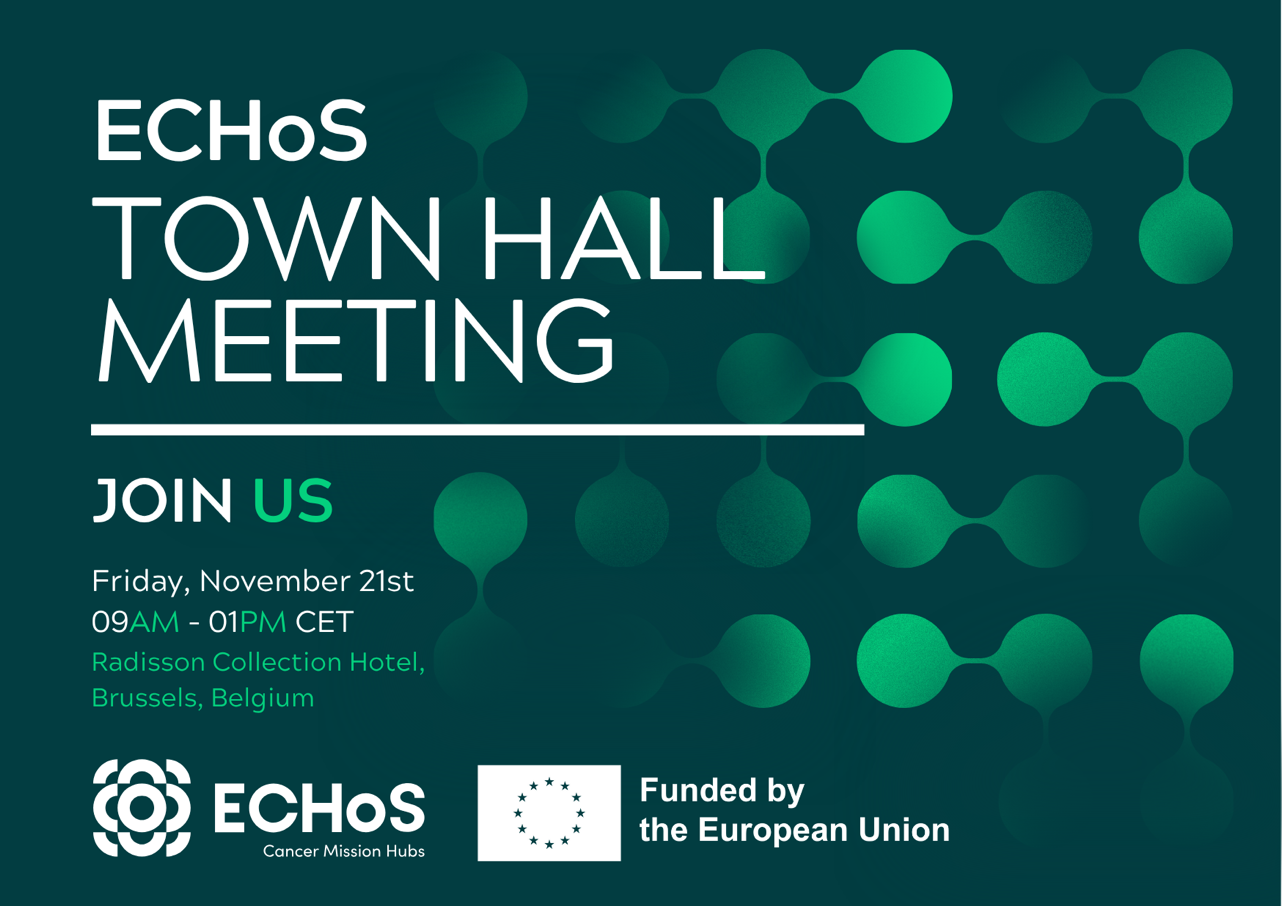
Delegates attending the European Cancer Summit 2025 were invited to stay for the ECHoS Town Hall Meeting, the following morning – in the same hotel.
ECHoS (Establishing of Cancer Mission Hubs: Networks and Synergies) is the pan-European project to establish national hubs to advance the EU Mission on Cancer and its goals of citizen and stakeholder engagement, greater innovation, and equitable access to care.
This meeting brought together policymakers, researchers, healthcare professionals, and civil society to discuss:
- How the hubs are connecting key players working on cancer – from governments to hospitals to patient organisations – so they can better coordinate their actions
- How the hubs are ensuring the goals of the EU Mission on Cancer are actually carried out locally to improve care and reduce disparities nationally
- How the hubs are aligning research, policy, and innovation – linking national initiatives to the broader European cancer agenda
The European Cancer Organisation is a proud partner of this EU-funded project to strengthen national infrastructures and accelerate progress towards a more connected and equitable approach to cancer control across Europe.
Speakers
-
Olivér Várhelyi European Commissioner for Health and Animal Welfare
-
Nicolae Ștefănuță MEP Vice-President, European Parliament & Substitute, Committee on Public Health
-
Romana Jerković MEP Vice-Chair, Committee on Public Health
-
Tomislav Sokol MEP Member, Committee on Public Health & Co-Chair, European Parliament Intergroup on Cancer and Rare Diseases
-
Nicolás González Casares MEP Member, Committee on Public Health, European Parliament
-
Billy Kelleher MEP Substitute, Committee on Public Health
Speakers
-
Olivér Várhelyi European Commissioner for Health and Animal Welfare
-
Nicolae Ștefănuță MEP Vice-President, European Parliament & Substitute, Committee on Public Health
-
Romana Jerković MEP Vice-Chair, Committee on Public Health
-
Tomislav Sokol MEP Member, Committee on Public Health & Co-Chair, European Parliament Intergroup on Cancer and Rare Diseases
-
Nicolás González Casares MEP Member, Committee on Public Health, European Parliament
-
Billy Kelleher MEP Substitute, Committee on Public Health


